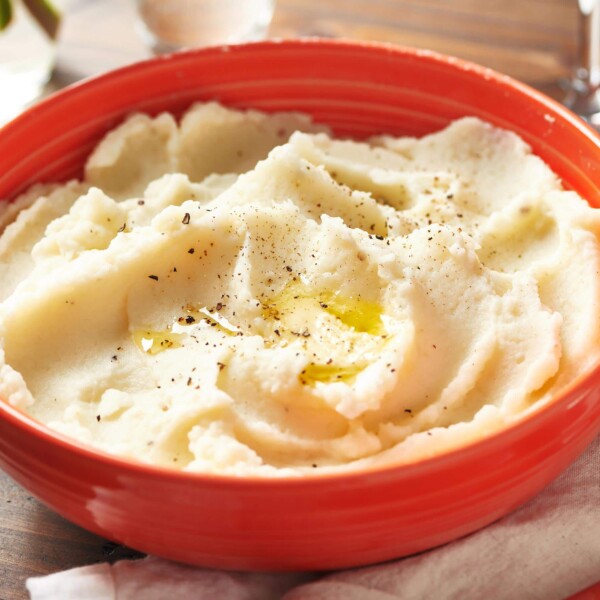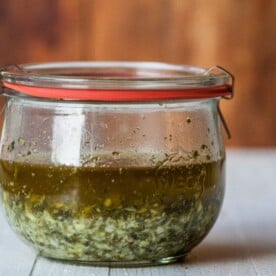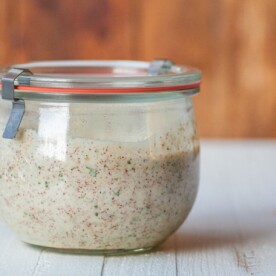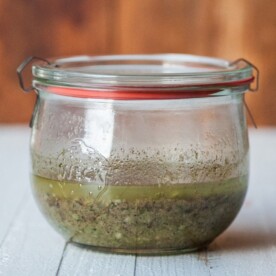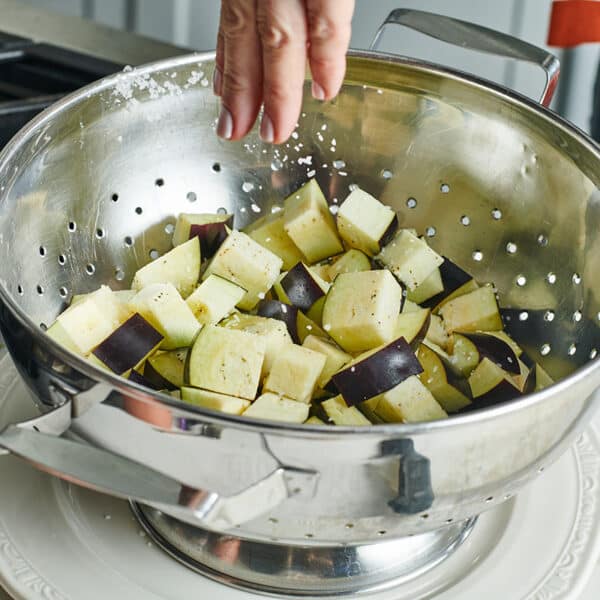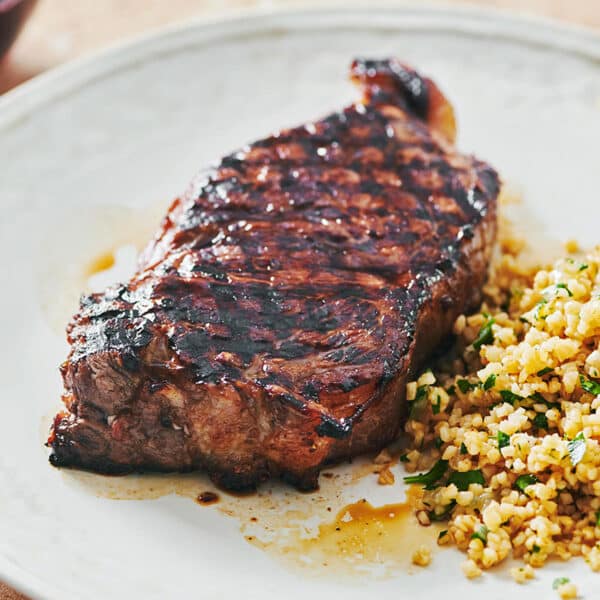How Long to Marinate Chicken, Meat, Fish, and Veggies
on May 29, 2024, Updated Jul 29, 2024
This post may contain affiliate links. Please read our disclosure policy.

How long to marinate chicken? Pork chops? A steak? Vegetable kebabs? Tofu? Do you need to thaw meat before marinating it? There are so many important marinating questions…and you’re in the right place to get them answered. We can also talk about how to marinate tofu, seitan, and tempeh while we’re at it — and I’ll drop some fabulous marinade suggestions along the way.
These are general marinating guidelines, and of course, most recipes will give you specific instructions. How long you need to marinate meat depends primarily on what type of meat you’re working with: bone-in chicken needs to marinate for much longer than boneless chicken, for example. I love marinating, and you’ll often find me using an easy chicken marinade or a quick vegetable marinade. It’s an easy way to add flavor to your meal, and marinades are great for prepping meals and make-ahead showstoppers.
By signing up, you agree to our Privacy Policy.
What's In This Post?
- Why Marinades Are So Great
- Tips for Marinating Success
- Can You Use a Marinade as a Sauce?
- Can You Reuse a Marinade?
- How Long to Marinate Chicken
- How Long to Marinate Beef and Pork
- How Long to Marinate Fish and Seafood
- How Long to Marinate Soy Products
- How Long to Marinate Vegetables
- FAQs
- What to Serve With Marinated Main Dishes
- 5 Marinade Recipes to Try
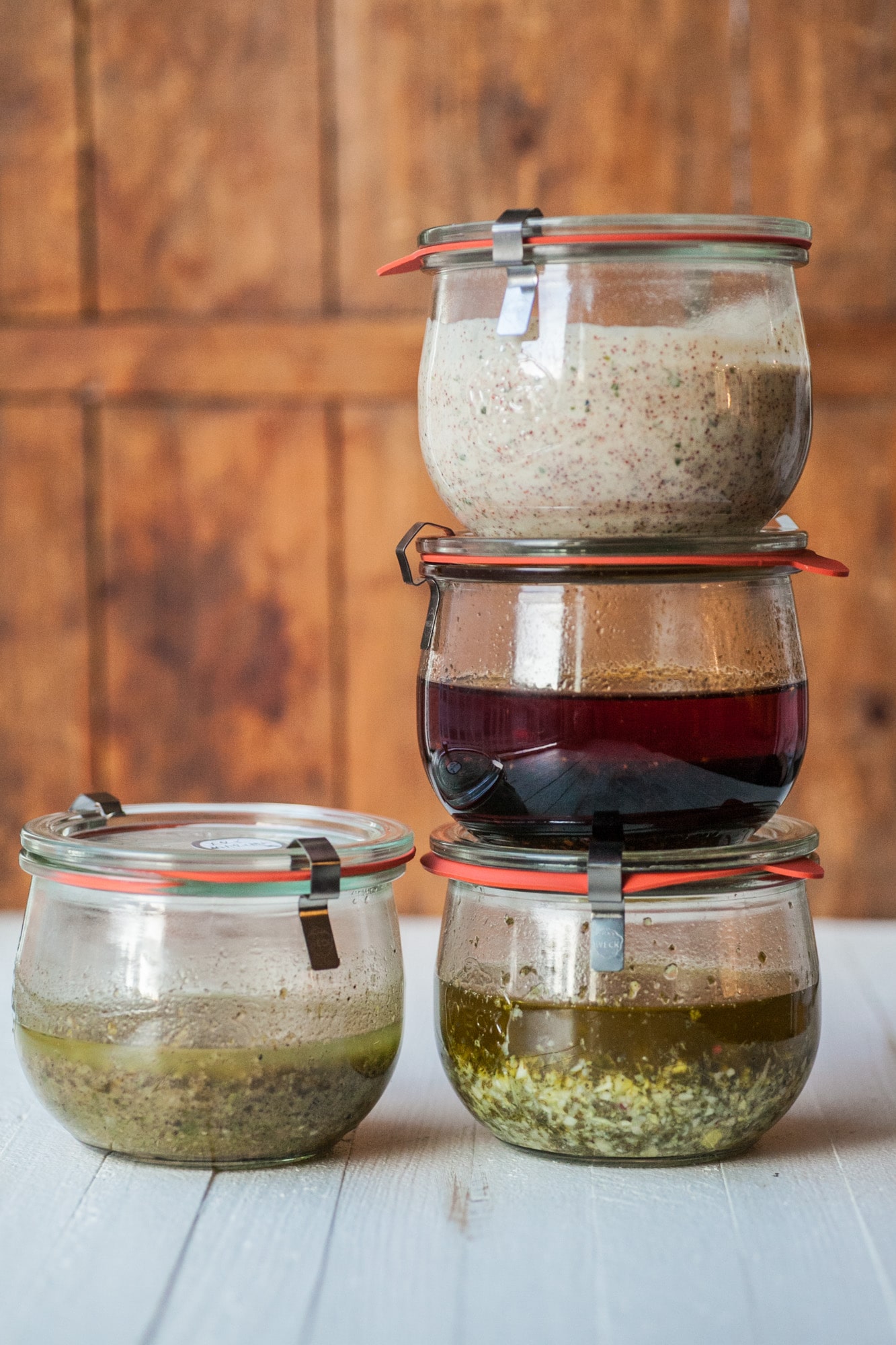
Why Marinades Are So Great
Marinades are brilliant because essentially, you can take any kind of meat or fish or seafood you like, give it a dunk in the mixture, and you’ve turned a plain something into a great dinner. Marinades add flavor and can also make foods more tender. The more delicate the protein, the less you want to marinate it, especially if your marinade contains citrus juices, which can start to “cook” the food and change its texture (e.g., make it mushy).
Tips for Marinating Success
- The thinner and less dense the food, the less time it needs in the marinade.
- The more acid (e.g., citrus juice, vinegar) in the marinade, the less time the food should marinate.
- Unless you are marinating food for 30 minutes or less, or the food you are marinating is a non-meat item like vegetables, make sure you do it in the refrigerator.
How Long To Marinate Chicken? And steaks, fish, shrimp, pork, tofu, vegetables…. a breakdown of marinating timing guidelines (and marinade recipes!).
Can You Use a Marinade as a Sauce?
If you want to use some of the marinade as a sauce, separate it from the rest of the marinade before adding your raw protein.
For food safety, never reuse a leftover marinade or serve it as a sauce because it can have harmful bacteria (per FoodSafety.gov). If you’re using the marinade to baste, stop basting with the marinade well before the food is cooked, so any raw meat, fish, or poultry juices in the marinade have time to cook away.
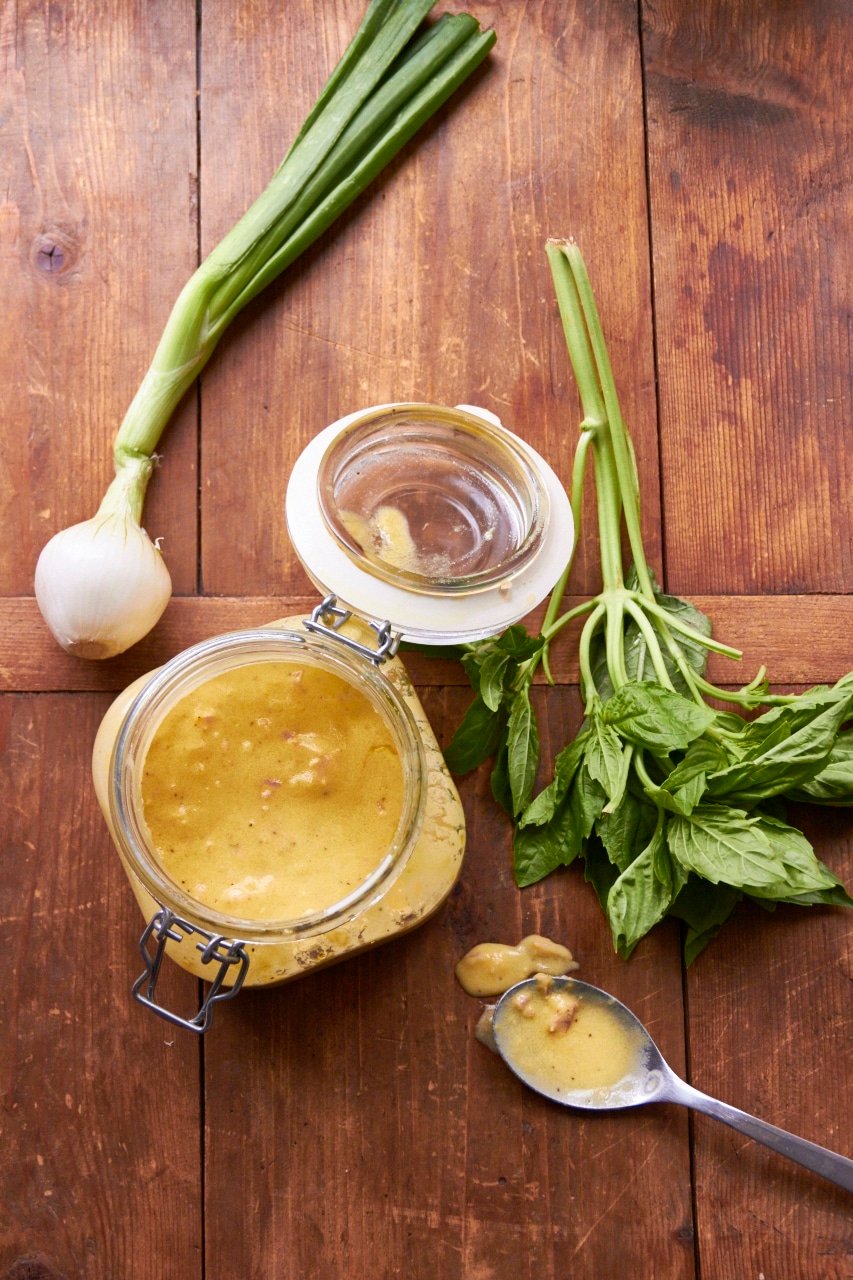
Can You Reuse a Marinade?
You should not reuse a marinade unless you have only used it to marinate vegetables. Even then, use it within a few days.
Some marinades can be boiled after the raw food is taken out, and then they are safe to use, according to the USDA. The marinade should come to a rolling boil and a temperature of at least 165 degrees. Marinades with a lot of sugar in them might burn, though, and marinades with a lot of acidity might change in flavor.
How Long to Marinate Chicken

I love to use a quick and easy chicken marinade to make my chicken sing. If you’re looking for something basic and pleasing, try out Chicken Breasts with Roasted Garlic Marinade. When you’re interested in something more flavorful and exciting, try Chicken Thighs with Indian Curry Yogurt Marinade.
Here’s how long to marinate chicken of various sizes and compositions:
- Whole chicken: 4 to 12 hours
- Bone-in pieces: 2 to 6 hours
- Boneless pieces: 30 minutes to 2 hours
How Long to Marinate Beef and Pork
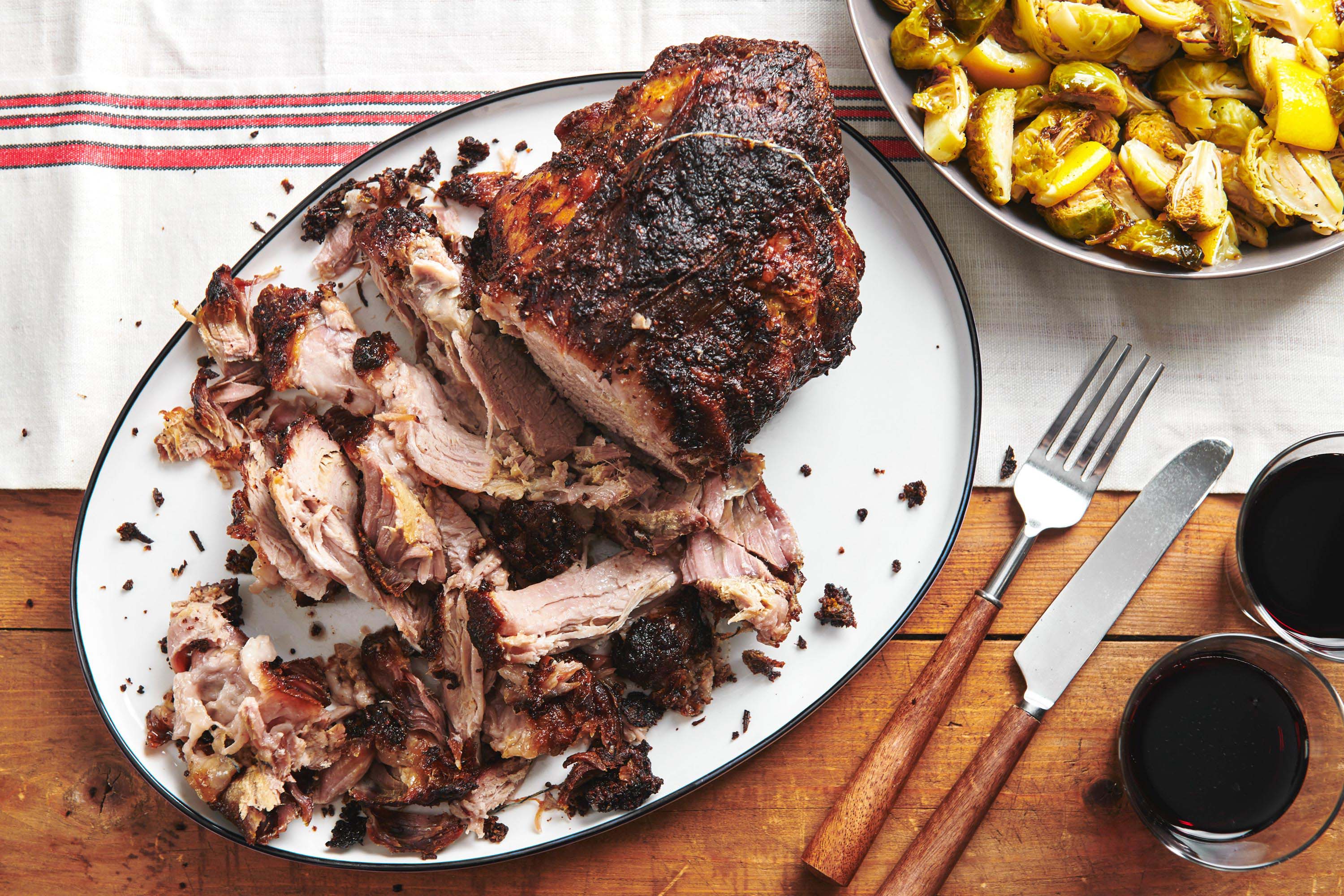
Many people shy away from marinating beef and pork because it seems like such a big deal. Follow a trusted recipe like Easy Fall-Apart Roasted Pork Shoulder or Balsamic-Marinated Skirt Steak, and marinating meat isn’t so intimidating.
Here’s how long to marinate beef and pork cuts:
- Bigger roasts, such as chuck roast or pork shoulder: 2 to 8 hours
- Tougher or larger steaks, like strip steak or London broil: 1 to 2 hours
- More tender cuts of meat, like sirloin, skirt or flank steak, lamb or pork chops: 30 minutes to 1 hour
How Long to Marinate Fish and Seafood
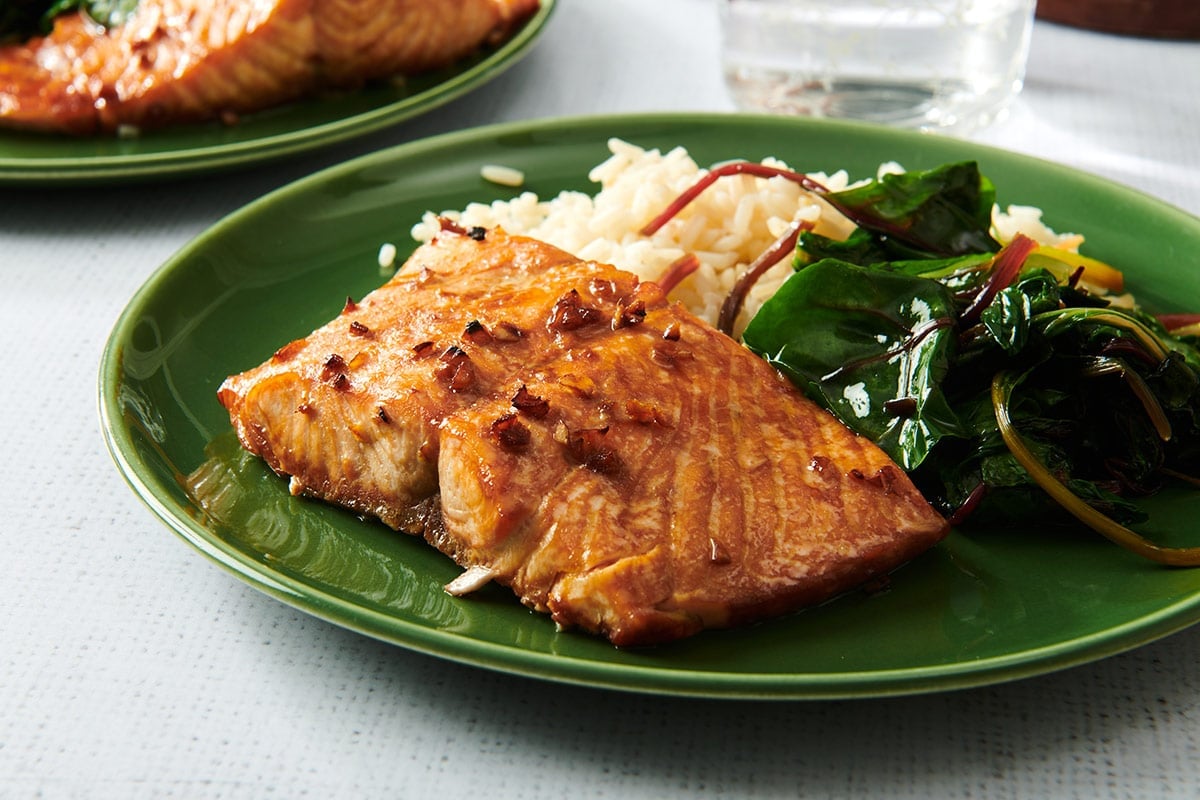
Those who know me well know that I adore cooking a good marinated salmon filet. Try out Honey Ginger Salmon or Miso Salmon for marinades that take only five minutes to come together.
Here’s how long you need to marinate the rest of the seafood world:
- Filets, scallops, shrimp: 15 to 20 minutes
- Whole fish, thick fish steaks: 30 minutes
How Long to Marinate Soy Products
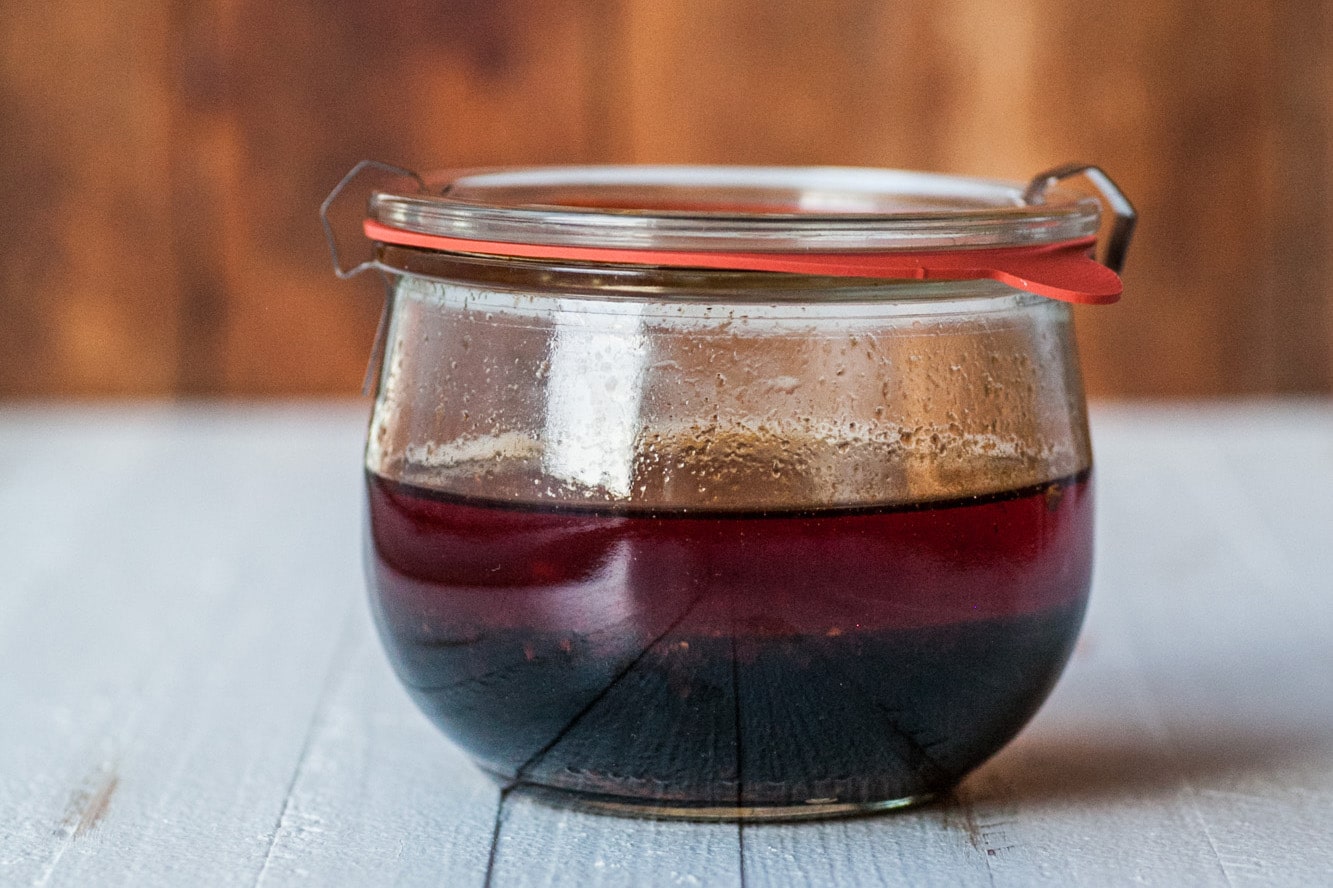
There’s nothing better than tofu or seitan marinated in a nice Spicy Sesame Asian Marinade — this 6-ingredient marinade recipe turns everything it touches into gold.
Here’s how long to marinate tofu and all the other soy products your heart desires:
- Tofu: 30 minutes to 1 hour
- Seitan and tempeh: 1 to 6 hour
How Long to Marinate Vegetables
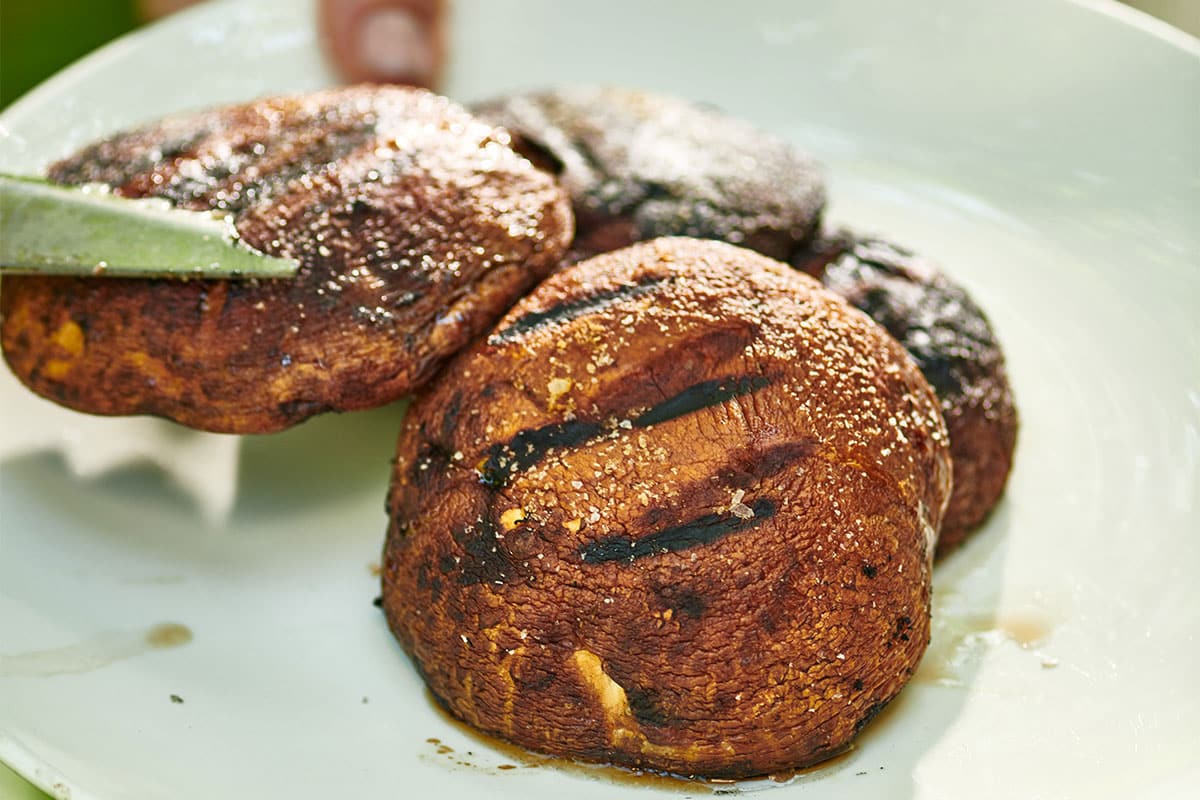
Veggies don’t necessarily require marinating, but putting in that extra effort can definitely elevate the taste. I am particularly partial to a Grilled Portobello Mushroom that has been marinated before being cooked, but honestly, any grilled vegetable would benefit from that treatment.
Here’s how long to marinate vegetables of various sorts before you fire up the grill:
- Dense vegetables, such as carrots, squash, potatoes: 1 to 2 hours
- Softer vegetables, such as broccoli, zucchini, tomatoes: 30 minutes to 1 hour
And now you’re off to the races. Check out the FoodSafety.gov Minimum Safe Internal Temperatures Chart for all kinds of meat!
FAQs
Always in the fridge, never at room temperature.
You can leave a whole chicken soaking in its marinade for up to 12 hours in the fridge. For bone-in pieces, that upper limit comes sooner, at 6 hours. If you’re working with boneless chicken cuts, which are the most tender to begin with, you should limit the marinating to 2 hours.
“Marinate” is a verb — you can marinate steak, meaning that you can soak steak in a special sauce before cooking. “Marinade” is the name of that sauce. It’s a noun; use it in a sentence as you would the word “sauce,” as in this is my easy chicken marinade!
It depends on what kind of meat you’re working with. With more tender meats like fish filets and boneless chicken, you can get away with only marinating for a half hour. The same goes for veggies like broccoli. However, for tougher types of meat, it will take considerably longer for the marinade to start breaking down the flesh.
What to Serve With Marinated Main Dishes
5 Marinade Recipes to Try
Turn something plain into a delicious dinner with these easy marinade recipes.


